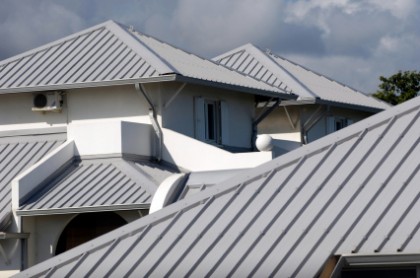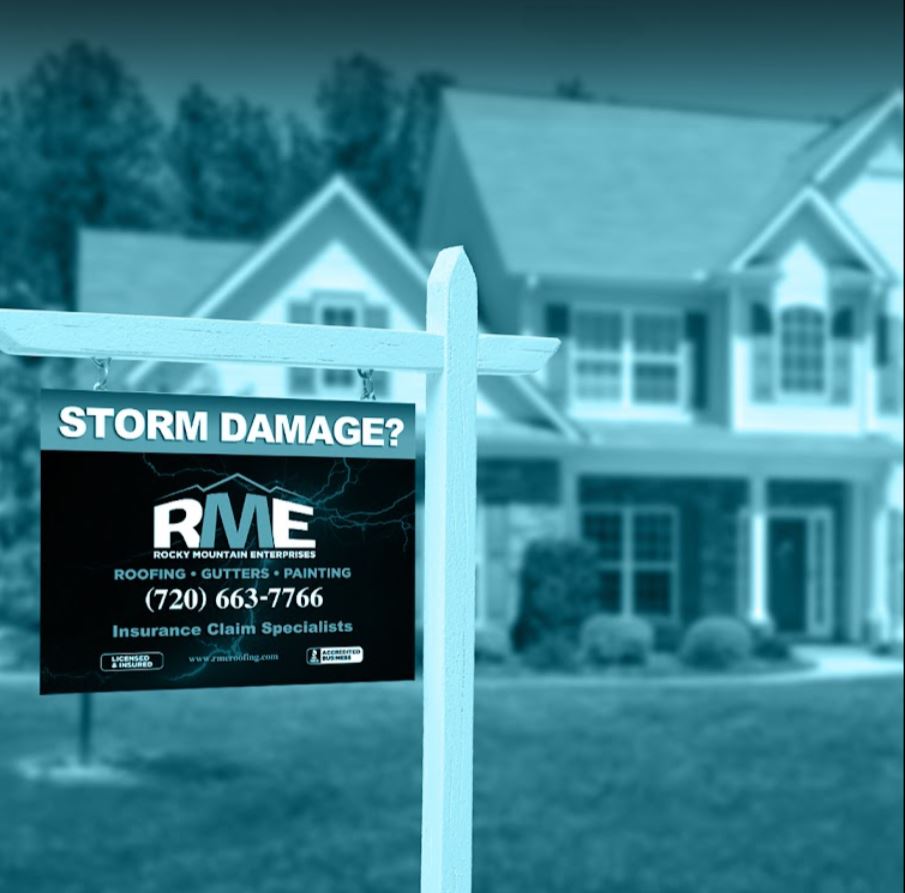For homeowners, a roof leak is never a welcome sight. But, all types of roofing materials can become damaged and lead to leakage. This goes for metal roofing, too. While metal roofing is sturdy and holds up well against water damage, certain issues can lead to a metal roof leak.
Here in Colorado, the team at RME has seen its fair share of metal roof leaks. By understanding the potential causes of a leak and when you should schedule a Denver roof replacement to resolve it, you can better protect the condition of your roof.
Potential Causes of a Metal Roof Leak
There are several possible causes of a metal roof leak, including:
Sealant Damage
Metal roofing systems require sealant to fill in gaps surrounding the roof transitions and under roof trims. Unfortunately, the sealant typically doesn’t withstand the full lifespan of the roof itself. When the sealant breaks down over time, it will leave the gaps vulnerable to leakage.
For a metal roof, regular maintenance should involve replacing the sealant as it wears down. It’s important to use a sealant that’s made especially for metal roofing, given that silicone caulking generally won’t stick to the metal panels. Additionally, metal roofing expands and contracts every single day, making it crucial for sealants to stretch along with the metal.
Insufficient Flashing
Flashing is installed around vulnerable areas of a roof, including chimneys, roof valleys, and walls, to prevent water damage. If water reaches these areas of a roof without flashing, it could seep in and cause problems. If there isn’t enough flashing installed on a metal roof, it could result in a full-blown leak. The end walls, side walls, and roof valleys tend to be the starting point for roof leakage, so be sure to have them checked out if you suspect a metal roof leak.
Fastener Damage
The panels on a metal roofing system are held together with either clips or screws with a rubber washer positioned at the screw head’s base. This washer essentially creates a gasket between the screw and the roof panel, which can effectively keep water from seeping into your roofing system.
The roofing screws can have several problems that may cause leakage. While skilled Colorado metal roofers, like the team at RME, have the expertise to install the roofing screws properly, others may run into problems while installing roofing screws for metal roofing. The screws may be misaligned, under-driven, or over-driven. All of these problems can cause gaps in the metal seam laps, providing a space for water to leak into the roofing system.
Insufficient Slope
For any type of roofing system, sufficient slope is needed to prevent ponding water. Ponding water occurs when water accumulates and sits on the surface of the roof, rather than draining properly. Metal roofing requires enough of a slope to drain water off of its surface (generally a slope of 4/12). Without enough of a slope, your metal roof may be accumulating water, which creates the risk of a leak.
Poor Installation
There are several components that must be installed properly to protect the condition of a metal roof and prevent water damage. These include vent flashings, downspouts, foam closures, edge metal, and gutters. If any of these components are poorly installed, they may either not function properly or be susceptible to damage and eventually break.
To ensure that your Colorado metal roof has the strength to withstand the elements and keep out water, you need a professional roofing team at your side. RME has long been a leading metal roofing company, creating durable, long-lasting metal roofing systems for Colorado homeowners. Installed correctly, metal roofing can withstand water damage, avoid leakage, and last for over 50 years.
If you think that your metal roof may be leaking, contact the team at RME. Our team will assess the damage and recommend the best roofing solutions for your needs, whether it be repairs, maintenance, or a full Denver roof replacement.


